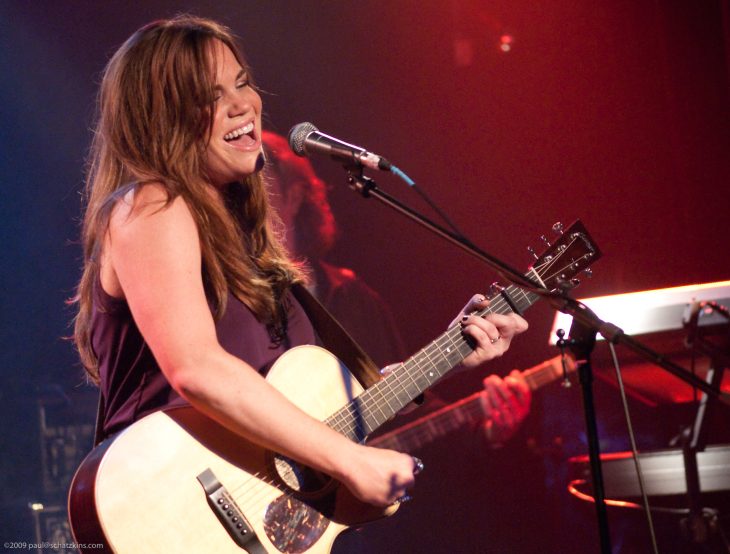About 5 years ago, I was fortunate to be invited to attend the annual American Music Conference here in Nashville (little known fact: I was actually on the Founding Council that started the AMA back in like 2000).
After the conference, I sat down with the program guide from all the showcase and went on line (at the time it was LaLa.com) to stream/listen to some of the artists whose showcases I’d missed. One track stopped me in… well, my tracks. It was an artist I’d never heard of named Bonnie Bishop and the track was called “Lucky Ones.” Here, listen to it for yourself:
Bonnie has released a couple of records since then; visit her Spotify page to hear more. What you’re going to hear is one of the gut-wrenching-est voices this side of… well, Janis Joplin comes to mind…
I tracked her down later that year, and she let me photograph a showcase that she performed at one of Nashville’s clubs. She was still doing her level best to land a fucking record deal…
Over the past decade+, Bonnie Bishop’s career has seen all the vagaries typical of today’s itinerant, independent singer/songwriters – they who that travel and toil under the radar of the mainstream commercial music industry. They for whom the life of an “artist” is “mostly driving.”
Two years ago, she was on the threshold of throwing it all in.
That’s all going change with the release of her new CD, “Ain’t Who I Was” next month. The title track was released today:
And here’s what you need to know about the pedigree of this new record, which will be officially released on May 27:
- It was produced by Nashville’s hottest producer, the Chet Atkins/Owen Bradley of the twenty-teens, Dave Cobb. Talk about being on a roll: Dave Cobb is responsible for the breakthrough solo releases by Jason Isbell, Sturgill Simpson and 2016 multi- CMA, Grammy and ACM winner Chris Stapleton (all Spotify links). You just don’t get any hotter a hand than the one Dave Cobb has been playing over the past few years. And the Atkins/Bradley reference is not an overstatement – he recently took over the keys to Nashville’s fabled Studio A (sometimes referred to as Nashville’s Abbey Road), which was built by Chet and Owen in the 1960s and narrowly escaped a condo-developer’s wrecking ball in 2014.
- The release and distribution of “Ain’t Who I Was” is being handled by Thirty Tigers, a new-paradigm label services and distribution company that is one of the few companies that has cracked the code on the new digital business – and not coincidentally the same firm that handled the break out releases for Jason Isbell and Sturgill Simpson, among others.
RollingStone.com has got a great account of the kismet that went into the song selection and production of this new record:
The recording sessions were coming to an end when Cobb’s cousin, singer/songwriter Brent Cobb, walked into the studio with a track he’d co-written earlier that afternoon.
“Dave opens a brand new bottle of his favorite tequila,” Bishop remembers, “and we all take shots. Then Adam [Hood] and Brent play us the song they wrote. I have chills. I look over at Dave, who is nodding his head and grinning at me. Then I sing the words back to them while Brent plays the guitar and they sound so natural coming out of my mouth. It’s like I’ve been singing this song all my life.”
The song was “Ain’t Who I Was,” which became the title track to the new CD. When you hear it, you can’t help but think that the spiral has come back around, only at a much higher level, and that Bonnie Bishop is about to become, truly, one of “the lucky ones.”


